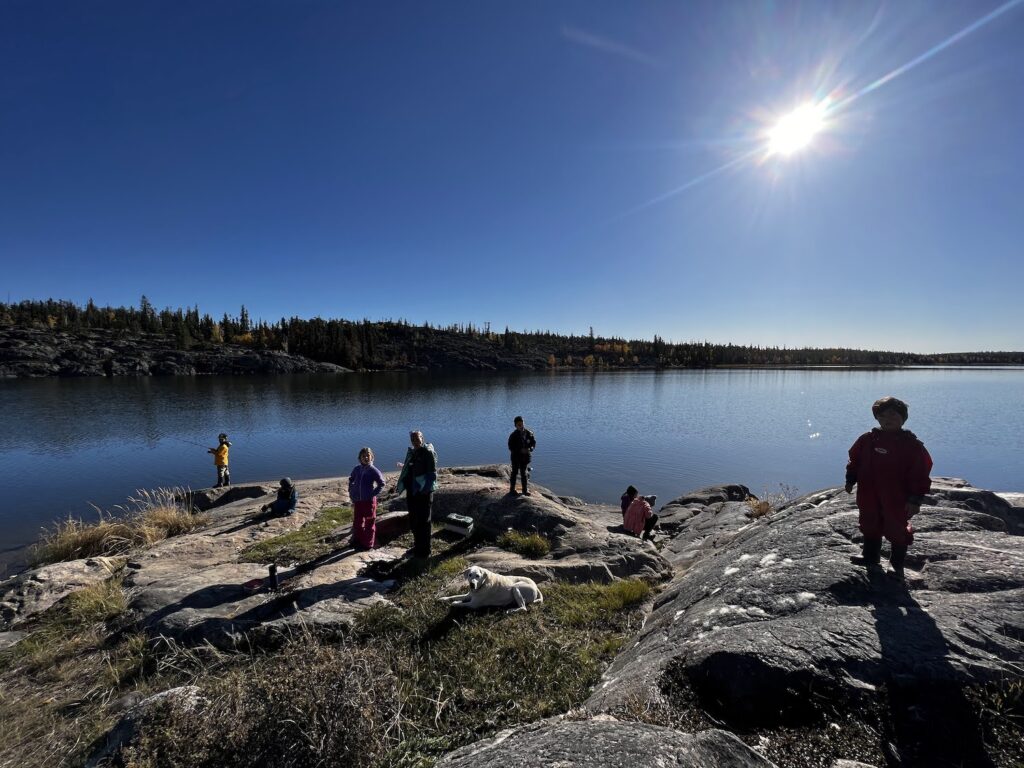Learning Story – Questions About the Ekwǫ̀ (Caribou)
The Week of September 20, 2022

What Happened?
Today we ate so much ekwǫ̀ (caribou). This was gifted to us by educator Cailey and her family. We shared questions about the ekwǫ̀: where did it come from?, how does it stay warm all winter?, what part of the body is that? We explored the hair on the caribou and why it is hollow. We looked for tendons and where they attach on the bone. The Bushkids helped to process and cut the caribou – we saved some for next week too. The bones were sawed open and the Bushkids loved taking the marrow out to eat it “I haven’t eaten this in soooo long!” We finished the day reading the story “The Legend of Caribou Boy” told by John Blondin.
Why is this important?
So many beautiful inquiries happened today outside of our inquiry with the ekwǫ̀ (please see the photos of fishing, making fires, collecting snail shells at the lake, making bannock, painting bins), but we have chosen to focus on ekwǫ̀ for this learning story because the ekwǫ̀is so important to all Indigenous peoples from the north. Ekwǫ̀ provides everything needed to survive – clothing for all weather and occassions/ceremonies, moccasins, babiche, food, tools, hunting bags, dog harnesses and everyday things people needed to enjoy daily life. Nothing from the ekwǫ̀ got wasted. Families followed the migration routes of the ekwǫ̀, these routes are their homes. “We are caribou people” means that Indigenous peoples have relied on ekwǫ̀ for all of their history. We discussed the importance of preserving and protecting the ekwǫ̀ because their numbers are so low now (Bathurst caribou are down from over 450,000 in 1986 to just over 6,000 in 2021). Identity and culture comes from ekwǫ̀ – mind, body and spirit. This might be challenging for some Bushkids to appreciate, but the more we discuss it and offer opportunities
to connect with and learn about the gifts of the ekwǫ̀, the more understanding and empathy there will be. We shared a story “The Legend of Caribou Boy” with the hope that the Bushkids can appreciate that this is just one story of so many that have been shared for generations.
What does this mean for next time?
We will have an opportunity to eat ekwǫ̀ again next week and we can have a knowledge building circle to share more stories and questions that we have about ekwǫ̀. When we are gifted food from the Land, one way we show reciprocity is by learning about the animal, where it’s from, how/when it was hunted, the historical and cultural significance of the animal and how to say the animal’s name in local Indigenous languages and the languages of the Bushkids.
